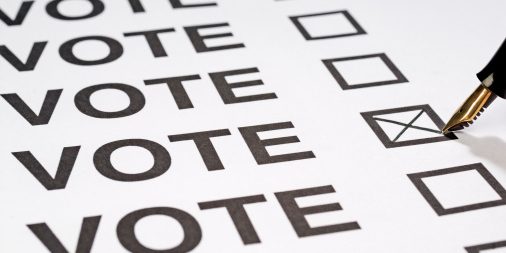Nine states, including seven with Republican trifectas, have enacted legislation this year related to the eligibility of noncitizens to vote. In total, voters in eight states will consider ballot measures related to noncitizen voting at the November general election.
In Louisiana, SB 436 requires proof of citizenship for voter registration applications. In 2022, Louisiana voters approved a ballot measure amending the state constitution to prohibit noncitizens from voting or registering to vote.
Six states referred constitutional amendments to voters to decide whether to add a prohibition on noncitizens voting to their state constitutions:
- Idaho lawmakers passed HJR 5, which created the Idaho Citizenship Requirement for Voting Amendment, which will appear on the ballot as a legislatively-referred constitutional amendment (LRCA) at the November election.
- North Carolina lawmakers passed H 1074 which referred the North Carolina Citizenship Requirement for Voting Amendment to voters at the November general election.
- Oklahoma legislators referred SJR 23, creating the Oklahoma Citizenship Requirement for Voting Amendment on the November ballot.
- Kentucky legislators referred the Kentucky Citizenship Requirement for Voting Amendment to voters by overriding Gov. Andy Beshear's (D) veto of SB 143.
- Missouri lawmakers passed creating the Missouri Require Citizenship to Vote and Prohibit Ranked-Choice Voting Amendment.
- South Carolina legislators referred the South Carolina Citizenship Requirement for Voting Amendment to voters by passing S 1126.
- Voters in two other states–Iowa and Wisconsin–will vote on LRCAs this November that lawmakers passed in previous years.
At least two states–Indiana and Tennessee–have adopted new laws to check for and remove noncitizens while conducting voter list maintenance activities.
The only new law related to noncitizen voting from a state with a Democratic trifecta comes from Minnesota. The state's new Voting Rights Act, HF 4772, requires that a voter be a U.S. citizen to vote an absentee ballot.
As of July 2024, seven states explicitly prohibited noncitizen voting in state and local elections while no state constitutions explicitly allowed noncitizens to vote in state or local elections. Since 2018, voters in six states have approved ballot measures related to adding language about citizenship requirements for voting.
On July 10, the U.S. House passed a bill that required proof of citizenship to register to vote in elections for federal office. The bill advanced by a vote of 221-198, with five Democrats joining all Republicans to pass the legislation.
Under federal law, it is illegal for noncitizens to vote in any federal election, including elections for the U.S. House, U.S. Senate, and presidential elections.
The information in this article is based on Ballotpedia's State of Election Administration Legislation 2024 Mid-Year Report. The report provides insights, analysis, and takeaways from the 3,735 election-related bills we tracked in the first half of this year.



